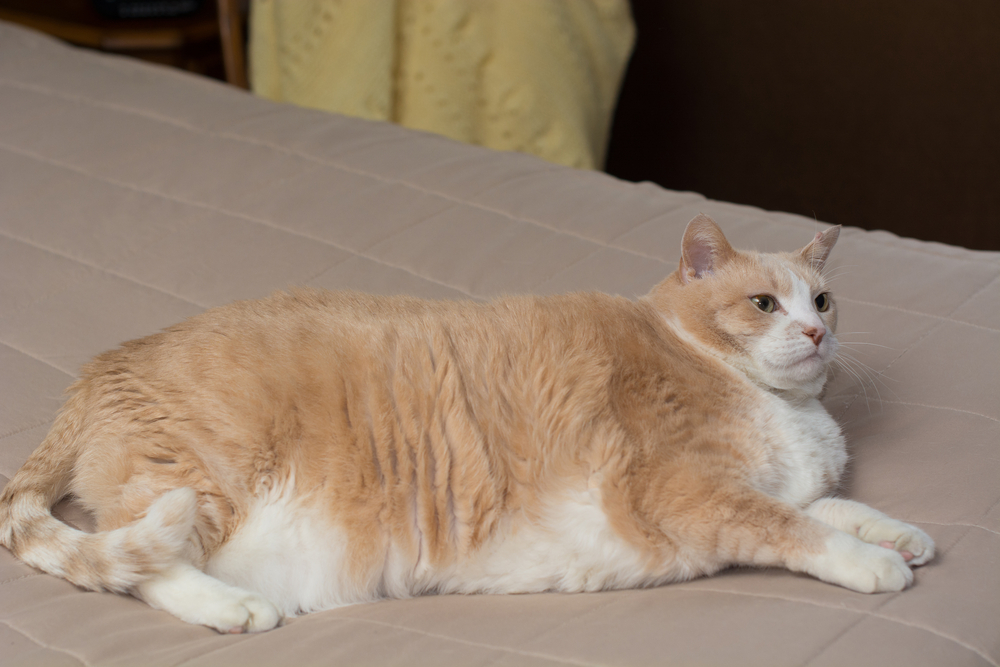The more your pet weighs, the more there is to love, right? Wrong. In fact, an overweight or obese pet often has a decreased lifespan, limiting your time together. Pets’ obesity can lead to numerous serious health issues, including osteoarthritis, chronic skin infections, diabetes, hypothyroidism, heart disease, breathing problems, and some cancers. A pet who is at their ideal body weight is generally happier and healthier overall, and is able to join their family in more activities. Use our Pioneer Animal Hospital team’s tools to help your four-legged friend maintain a lean body condition.
#1: A body condition score chart
While a scale shows you your pet’s weight, that number is not as useful as knowing your pet’s body condition score (BCS). A BCS is a personalized assessment of your pet’s weight and body condition, which is not held up to a particular breed’s ideal weight. For example, according to the breed standard, a Labrador should technically weigh between 55 and 80 pounds, but not all Labs fall within that range. If your pet is of mixed parentage, you can have more difficulty determining what they should ideally weigh. However, a BCS helps you determine whether your pet is overweight or too thin. A pet whose body condition is ideal has palpable ribs under a light fat covering, an hourglass shape with a visible waistline, and an abdominal tuck. Use American Animal Hospital Association’s body condition score chart to determine your pet’s BCS, or contact our Pioneer Animal Hospital team for help.
#2: A calculator
If your pet is at a healthy weight, the feeding guidelines on your dog’s or cat’s food label may be a good place to begin determining the amount they should be eating per day. However, these guidelines tend to be too generous. Rather than feeding your pet based on an amount suggested on a food label, calculate the daily calories they need. Using a calorie calculator for dogs or cats, determine your pet’s appropriate number of daily calories, accounting for whether they need to lose, maintain, or gain weight. Once you have calculated their appropriate daily calorie count, divide that number by two or three meals. Establish each serving’s calorie count, to determine the number of cups or part of a can they should be provided per meal to reach their daily calorie allotment.
#3: A measuring cup
When portioning your pet’s meals, do you simply fill the dish, or do you use whatever is handy to scoop a cup of kibble? To ensure your pet is receiving the correct amount of food, use an actual measuring cup. By doing this, you can be certain they are getting a true cup of food versus eyeballing an amount, which may be too much or too little.
#4: Food puzzles
Food puzzles are an excellent tool for encouraging your pet to work for their meal, burning off calories and pent-up energy in the process. You can use a food puzzle with wet or dry food, and you should regularly swap out the puzzle type to prevent your pet from becoming bored. You can create your own food puzzles using household items, or you can purchase a wide variety of available interactive puzzles. Try cutting holes in a plastic water bottle, then showing your pet how the kibble falls out when they roll the bottle around. In addition, you can scatter food pieces on a towel, and wind up the cloth so your pet can sniff out their meal from the layers. When designing your pet’s food puzzle, you are limited only by your creativity. Remember to provide your pet some guidance the first time they use any food puzzle to ensure they know how to reach their food.
#5: Your Pioneer Animal Hospital veterinarian
Helping your pet achieve an ideal weight can be difficult, so let Dr. Wood design a customized nutrition plan for your four-legged friend. If the excess pounds are still stubbornly holding on, your pet may have an underlying medical condition that makes weight loss difficult. For example, overweight dogs often have hypothyroidism, and their improperly functioning thyroid gland slows their metabolism, which can interfere with weight loss. If, despite your best efforts and nutritional counseling, your pet’s weight is not budging, our Pioneer Animal Hospital team can perform a comprehensive diagnostic workup to determine the cause.
Obesity can cause your pet a wide assortment of serious health issues, but managing your furry pal’s weight can add years to their life. For help keeping your pet’s weight under control, schedule an appointment with our Pioneer Animal Hospital team.


